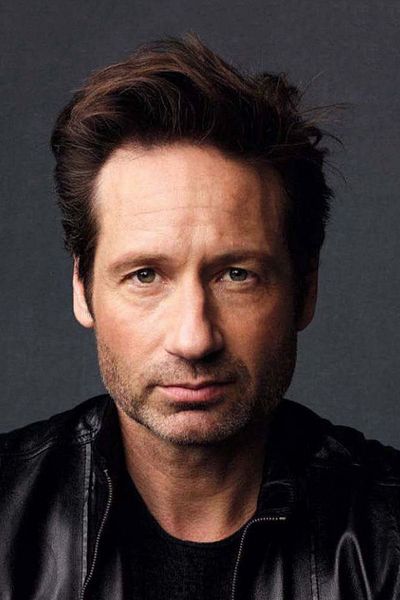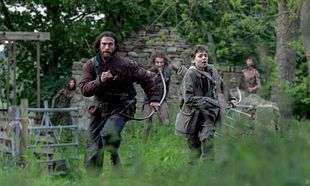Willa and Bill (Meg Ryan and David Duchovny) are two estranged former lovers who find themselves stranded in a busy airport during a storm that prevents them from moving onward. Over the course of their layover, they begin to reconnect and process their lives before and after they were together...
The post-script for 'What Happens Later' includes a dedication to Nora Ephron, the writer of 'When Harry Met Sally', 'You've Got Mail', 'Sleepless In Seattle', and, crucially, 'Heartburn'. That movie, which starred Meryl Streep and Jack Nicholson, was inspired by Ephron's own divorce from journalist Carl Bernstein and was really supercharged by its cast. Yet, even though it had powerhouses like Streep and Nicholson, the movie was largely overlooked. 'What Happens Later' is likely to suffer the same problem. Even though it has an icon of romantic comedy in Meg Ryan, both in front of and behind the camera, so much of it feels listless and kind of pointless.
The movie's central conceit is that it's never too late to reconnect with past loves and past lives, and that if we're open to new ideas and new ways of seeing, we can go on with a happier view on the world. If that seems like cloying sentimentalism, 'What Happens Later' compounds it with its two central characters. Meg Ryan and David Duchovny play a middle-aged version of 'Dharma and Greg', one of them woo-woo while the other's a stick-in-the-mud, now divorced and in desperate need of human connection in their lives. Over the course of an hour and three quarters, they careen from Generation X cynicism to magical thinking and leap days.
It's no surprise that 'What Happens Later' is based off of a stage play, as the movie is completely driven by dialogue and character, yet because their characters are ultimately archetypes and the dialogue is so self-aware, it never really connects on a human level. Really, it becomes aimless and like the characters themselves, there's something essential missing that seems impossible to find. More than that, the constant and heavy-handed messaging and metaphors about human connection and an ever-present announcer who sounds suspiciously like someone famous - Eddie Vedder, maybe? - just means 'What Happens Later' gets lost in its own world.
Given how Meg Ryan has been away for so long from screens, and how romantic comedies have more or less begun to repeat themselves in recent years, 'What Happens Later' does at least try to do something unique. By examining love in later life and with people with histories, there's a lot of possibilities here. Yet, for all of this, none of it is explored as eloquently or as effectively as it could have been.




















































































